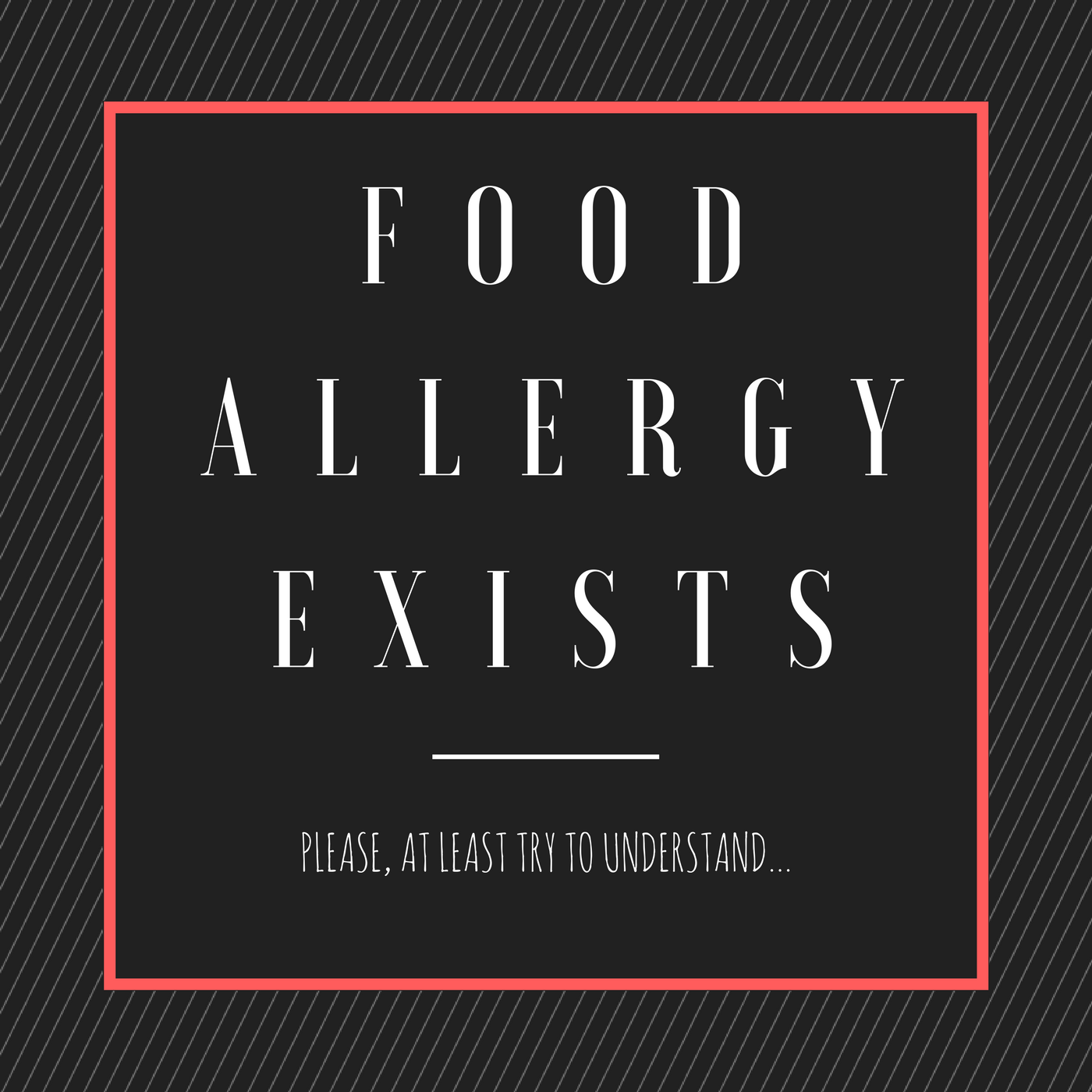Food allergies and food intolerances are often being confused. If you don’t know the difference but you’re aware that intolerance does not equal allergy, congratulations! You’re on the right trail and you’re about to find out why it’s not the same, as well as why it’s so important to distinguish between the two. Almost every conversation I have with people who didn’t know my child had milk protein allergy goes like this:
JB: Sorry, my daughter can’t eat it, she’s allergic to milk.
OP: Oh dear… I didn’t know. But luckily for you, there’s many lactose free products out there at the moment…
JB: She’s not lactose intolerant, she’s allergic to milk protein.
OP: ???
And so I start explaining once again what a BIG DIFFERENCE it is to be lactose intolerant in comparison to having a milk protein allergy. I cannot blame them… I had no idea something like milk allergy existed until few years back when I realised there’s something “wrong” with my baby. I thought: Babies can’t be allergic to milk, milk is the only thing they eat, right? RIGHT? Wrong, unfortunately…
The BIG difference between food allergy and food intolerance
Main difference is that food allergy always involves immune system reaction. Food intolerance is not lead by our immune system, it’s triggered by different mechanism and often causes digestive problems. There’s many reasons why some people are intolerant to certain food groups. It could be due to absence of an enzyme which is needed in order to digest food properly, due to chemical substances or additives in foods, toxins, natural occurrence of histamine (histamine intolerance) or salicylates contained in foods. Food intolerances in general are not life threatening. Food allergy, on the other hand, could lead to anaphylaxis, which is a very severe immune system reaction to allergen and life of affected person is in danger if not treated immediately.
Food allergy can lead to anaphylaxis – very severe reaction. Life of affected person is in danger if not treated immediately.
Symptoms of food intolerance are similar to symptoms of food allergy
As our body is not able to process the food correctly (because of the food intolerance), we experience difficulties or symptoms that might include:
- Bloating
- Stomach ache
- Intestinal problems such as constipation or diarrhoea
- Feeling unwell (in general)
- Nausea
- Migraines or headaches
- Or even symptoms like runny nose, cough or hives
Problems usually occur within hours or even days after consuming the food and might persist for rather long time. There is no real test available that would quickly tell us if you are food intolerant or which foods you should avoid. Usually it is a long process of trial and errors with elimination diet. You should always visit your doctor in case you’re experiencing any symptoms. They will run some test (including blood tests as some of the food intolerances might be detected from your blood) and will guide you in a process of identifying what food is good for you and what is causing trouble.
Prognosis for food intolerance
In case you’re food intolerant, you should avoid certain food for a while. After some time, you might find out that eating the food in small amounts is not causing any reaction. Some people are even able to go back to normal diet. Again, I must emphasise that you should talk to your doctor before taking any steps.
Food allergy
As it is clear enough from the above, food allergy is an immune system reaction to certain food. Or in general: Allergy is an immune system reaction to an allergen. My previous article Allergy explained in human language was almost exclusively dedicated to IgE mediated allergy. Now I’ve decided to look closer into non IgE mediated allergies. I suppose that one of the main reasons people often mistake food intolerance for allergy is that not all of the allergies are IgE mediated.
IgE mediated vs. non IgE mediated allergy
IgE mediated allergy is typical case where our confused immune system creates antibodies against harmless substances (allergens.) It’s clearly measurable in our blood so we can easily find out what are we allergic to. Our body is in the watch out mode for allergens and as soon as it comes into contact with them, it reacts. Therefore IgE mediated allergy usually creates immediate reaction.
Non IgE mediated allergy is far less understood than IgE mediated allergy. Immune system reaction is delayed, it kicks in within few hours or 1-2 days after consuming the food. Reactions are usually not life threatening.
The allergen in a food is identified by our immune system as potential threat during digesting process and that is when the reaction and symptoms occur. This kind of allergy is very common in babies and young children as their gut flora is developing. As soon as it matures, it might also build coping mechanism for allergens and child may outgrow the allergy.
Non IgE mediated allergy diagnosing
Non IgE allergy is much more difficult to diagnose than IgE mediated allergy. There is no test available for Non IgE allergies so far. At least not the ones that would tell you right away what exactly are you allergic to. Of course, your doctor will perform blood tests and some other tests that might indicate allergies in your body. But similarly to food intolerance diagnosing process, the elimination diet for several weeks will be required in order to find out and confirm which food is causing reaction. If you’re trying to diagnose non IgE allergy in breastfed baby, mum will have to avoid suspected food as well.
Getting to the root of the problem is the most difficult part of the process. Believe me, once you know for sure which food is good for you and which you need to avoid, you’ll get your head around it pretty fast. After that, you will be on the right trail to a healthy and happy life. I wish you the very best of luck.
Please, like and share this article if you find it useful and want to increase allergy vs. intolerance awareness.
Sources:
http://www.worldallergy.org/professional/allergic_diseases_center/foodallergy/
https://www.ncbi.nlm.nih.gov/pubmed/18782024
http://www.tcells.org/beginners/tcells/
https://aacijournal.biomedcentral.com/articles/10.1186/1710-1492-2-2-78
http://www.medicalnewstoday.com/articles/263965.php
http://www.mayoclinic.org/diseases-conditions/food-allergy/expert-answers/food-allergy/faq-20058538




